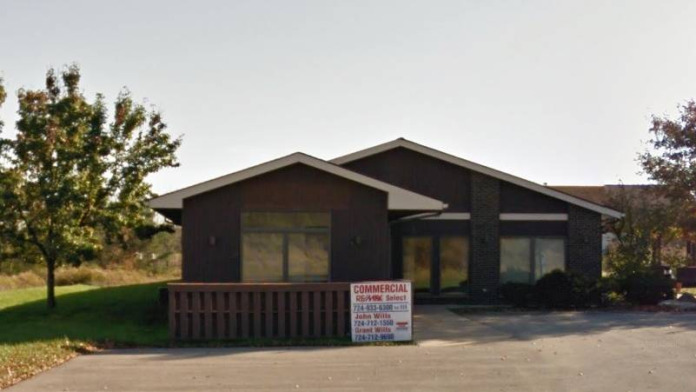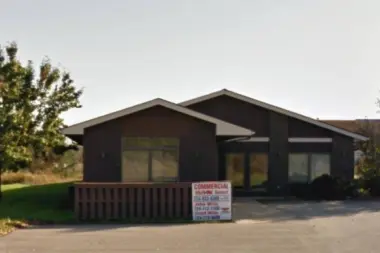About Pyramid Healthcare Inc. – Butler
Pyramid Healthcare’s Foundations Medical Services facility in Butler, Pennsylvania is an addiction and mental health facility that primarily assists individuals addicted to methadone and other opioids.
The facility currently accepts most major insurance providers, including Medicaid, as payment. They also work with unions and Employee Assistance Programs.
Methadone Medication Assisted Treatment
This Butler location specializes in helping adults struggling with addictions to methadone and opioids. The facility offers medication assisted treatment (MAT) to speed up the recovery process and provide healing while the individual focuses on recovering.
The individual will first meet with a clinical team to determine what level of treatment will be most beneficial. With MAT, clients are prescribed medication that reduces cravings and symptoms without producing a “high” euphoric feeling.
This clinic utilizes buprenorphine, Suboxone and Vivitrol.
Outpatient Therapy in Butler County
On top of MAT, clients can also participate in outpatient therapy designed to facilitate long term recovery. Group therapy is available once a week for about an hour and a half. These sessions identify issues like obstacles to recovery, coping with change, managing finances, and preventing a relapse.
Individual counseling is also available for clients. Pyramid Healthcare focuses on providing a safe and supportive environment.
The company was founded in 1999, and it’s now one of the leading and largest providers of behavioral healthcare in Pennsylvania. The Butler facility is also considered a Center of Excellence (COE).
The clinic is conveniently located near Greenwood Village. You can find the facility between Moraine Pointe Plaza and Aubrey’s Dubbs Dred Golf Course.
Latest Reviews
Rehab Score
Gallery


Other Forms of Payment
Medicaid is a state based program that helps lower-income individuals and families pay for healthcare. Medicaid covers addiction treatment so those enrolled can use their coverage to pay for rehab. When a program accepts Medicaid the client often pays very little or nothing out of their own pocket.
Self-pay involves paying for treatment out of your own pocket. You can use savings or credit, get a personal loan, or receive help from family and friends to fund your treatment. If you don't have insurance or your insurance plan doesn't cover a specific program, self-pay can help ensure you still get the care you need.
Financial aid can take many forms. Centers may have grants or scholarships available to clients who meet eligibility requirements. Programs that receive SAMHSA grants may have financial aid available for those who need treatment as well. Grants and scholarships can help you pai for treatment without having to repay.
Private insurance refers to any kind of healthcare coverage that isn't from the state or federal government. This includes individual and family plans offered by an employer or purchased from the Insurance Marketplace. Every plan will have different requirements and out of pocket costs so be sure to get the full details before you start treatment.
Addiction Treatments
Levels of Care
Their outpatient treatment programs provide individual counseling, group therapy sessions, and life skills workshops to give clients the tools necessary to live a sober and healthy lifestyle. Individuals and their families are also educated on the nature of addiction, how to avoid relapse, and strategies for maintaining a drug-free lifestyle. Clients in their outpatient treatment programs continue to live in their own homes, allowing them to uphold work, family, and academic commitments. They may not reside in a guaranteed sober environment, and may be forced to confront and cope with triggers present in their everyday lives during recovery.
Their treatment programs rely on the 12-step philosophy as an integral part of recovery. Clients attend Alcoholics Anonymous or Narcotics Anonymous as part of their treatment regimen. Beginning steps involve admitting powerlessness over the addiction and creating a spiritual basis for recovery. Middle steps including making direct amends to those who've been hurt by the addiction, and the final step is to assist others in addiction recovery in the same way.
Treatments
The goal of treatment for alcoholism is abstinence. Those with poor social support, poor motivation, or psychiatric disorders tend to relapse within a few years of treatment. For these people, success is measured by longer periods of abstinence, reduced use of alcohol, better health, and improved social functioning. Recovery and Maintenance are usually based on 12 step programs and AA meetings.
Drug rehab in Pennsylvania is devoted to the treatment of addiction. Levels of care, treatment methods, and settings differ, but the aim of each program is to end drug dependency and empower participants to achieve long-term recovery.
Substance rehabs focus on helping individuals recover from substance abuse, including alcohol and drug addiction (both illegal and prescription drugs). They often include the opportunity to engage in both individual as well as group therapy.
Programs
Adult rehab programs include therapies tailored to each client's specific needs, goals, and recovery progress. They are tailored to the specific challenges adult clients may face, including family and work pressures and commitments. From inpatient and residential treatment to various levels of outpatient services, there are many options available. Some facilities also help adults work through co-occurring conditions, like anxiety, that can accompany addiction.
Young adulthood can be an exciting, yet difficult, time of transition. Individuals in their late teens to mid-20s face unique stressors related to school, jobs, families, and social circles, which can lead to a rise in substance use. Rehab centers with dedicated young adult programs will include activities and amenities that cater to this age group, with an emphasis on specialized counseling, peer socialization, and ongoing aftercare.
Clinical Services
Experiential therapy is a form of therapy in which clients are encouraged to surface and work through subconscious issues by engaging in real-time experiences. Experiential therapy departs from traditional talk therapy by involving the body, and having clients engage in activities, movements, and physical and emotional expression. This can involve role-play or using props (which can include other people). Experiential therapy can help people process trauma, memories, and emotion quickly, deeply, and in a lasting fashion, leading to substantial and impactful healing.
Family involvement can be critical to a client’s success during and after treatment. Pyramid Healthcare has developed a family program designed to educate the client’s family members about the disease of addiction. This program helps both the individual in specialty treatment and their family learn skills and develop behaviors effective in minimizing the negative impact of the addiction on the familial relationship. Their family program can also open lines of communication between the client and their family members. Pyramid Healthcare counselors can provide family counseling if it is requested by the client.
Group therapy is any therapeutic work that happens in a group (not one-on-one). There are a number of different group therapy modalities, including support groups, experiential therapy, psycho-education, and more. Group therapy involves treatment as well as processing interaction between group members.
In individual therapy, a patient meets one-on-one with a trained psychologist or counselor. Therapy is a pivotal part of effective substance abuse treatment, as it often covers root causes of addiction, including challenges faced by the patient in their social, family, and work/school life.
Life skills trainings involve all the skills a person must have in order to function successfully in the world. These include time management, career guidance, money management, and effective communication. Truly successful addiction recovery is based on the ability to not only live substance-free, but to thrive. Life skills teaches the practical necessities of functioning in society, which sets clients up for success in life, and therefore sobriety.
Trauma therapy addresses traumatic incidents from a client's past that are likely affecting their present-day experience. Trauma is often one of the primary triggers and potential causes of addiction, and can stem from child sexual abuse, domestic violence, having a parent with a mental illness, losing one or both parents at a young age, teenage or adult sexual assault, or any number of other factors. The purpose of trauma therapy is to allow a patient to process trauma and move through and past it, with the help of trained and compassionate mental health professionals.
Amenities
-
Private Setting
Staff & Accreditations
Staff
Jeanimarie Goodwin
VP of Operations
Tyler Frederick
Senior Director of Marketing
Stephanie Thomas
Regional Director of Marketing
Holly Livingston, MSW
Regional Director of Marketing
Aleisha Albertson
Regional Residential Director
Kelly Salloum
Regional Residential Director
Katherine Beidel
Regional Outpatient Director
Accreditations

The Commission on Accreditation of Rehabilitation Facilities (CARF) is a non-profit organization that specifically accredits rehab organizations. Founded in 1966, CARF's, mission is to help service providers like rehab facilities maintain high standards of care.
CARF Accreditation: Yes

The Substance Abuse and Mental Health Services Administration (SAMHSA) is a branch of the U.S. Department of Health and Human Services. Established in 1992 by congress, SAMHSA's mission is to reduce the impact of substance abuse and mental illness on American's communities.
SAMHSA Listed: Yes
Contact Information
160 Hindman Road
Butler, PA 16001